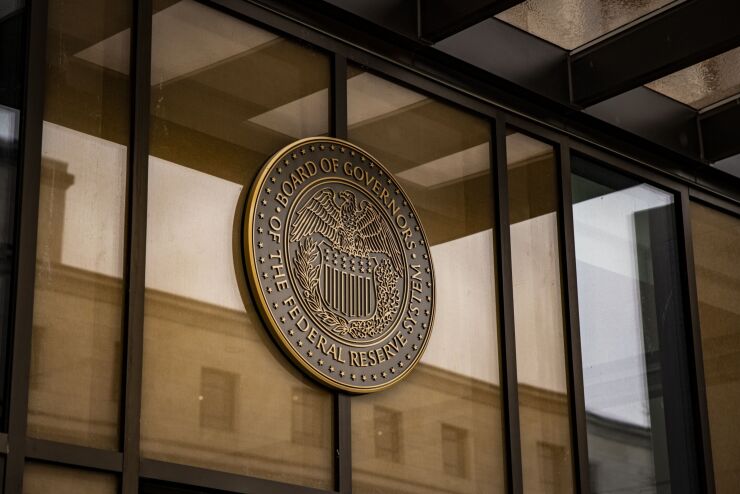
The federal judge overseeing Custodia Bank's lawsuit against the Federal Reserve narrowed the
Judge Kelly Rankin, a magistrate in the U.S. District Court in Wyoming, denied the digital asset bank's request for information about
Custodia filed suit against the Federal Reserve Board and the Federal Reserve Bank of Kansas City last summer over its application for a so-called master account. The request, which languished for months at the reserve bank, was
The scope of discovery, the process through which parties must disclose key information related to a legal proceeding, has been a
Ultimately, the court
Despite that ruling, issued last December, Custodia had continued to seek "various documents" from the Fed and third-party groups "regarding other bank's master account applications," according to a brief summary of Rankin's ruling, which was released Monday. It is unclear what precise information the bank was seeking. The subject was discussed in a private telephone conference between the two parties and Rankin, a court official said Thursday.
The Fed argued that the information sought was "overbroad and irrelevant." Rankin sided with them, determining that the request was "outside the scope of discovery at this stage of the litigation."
Both the Fed and Custodia declined to discuss the specifics of the request this week. A representative from Rankin's office said the terms discussed in the discovery hearing were private to the two parties.
The Fed Board of Governors is due to submit its administrative record by August 21. The Kansas City Fed, which oversees the Federal Reserve System's 10th District, has already provided its discovery documents to Custodia.
Nathan Miller, a spokesman for Custodia, said this week's ruling will not impact the bank's legal challenge, noting that the bulk of the discovery process is either complete or underway. He added that one of the judges overseeing the case, Scott Skavdahl, had previously endorsed the importance of discovery in the case to determine "whether the Board of Governors was pulling the puppet strings behind the scenes," a nod to Custodia's argument that the Washington-based board might have overstepped its bounds by delaying the Kansas City Fed's action on Custodia's application.
Miller said the case, which is set to go to trial next spring, will have implications for other lawsuits that have been brought against the Fed on similar grounds. Idaho-based PayServices Bank filed suit against the San Francisco Fed in June and Puerto Rico-based Banco San Juan Internacional sued the New York Fed in July. Both depositories are arguing that they are entitled to master accounts under provisions of the Monetary Control Act of 1980.
"Three separate lawsuits are now pending against the Fed on the same statutory question — whether the Fed 'shall' provide services to all eligible depository institutions, as the statute requires," Miller said. "The answer to that statutory question is now firmly in the hands of the federal court system."






